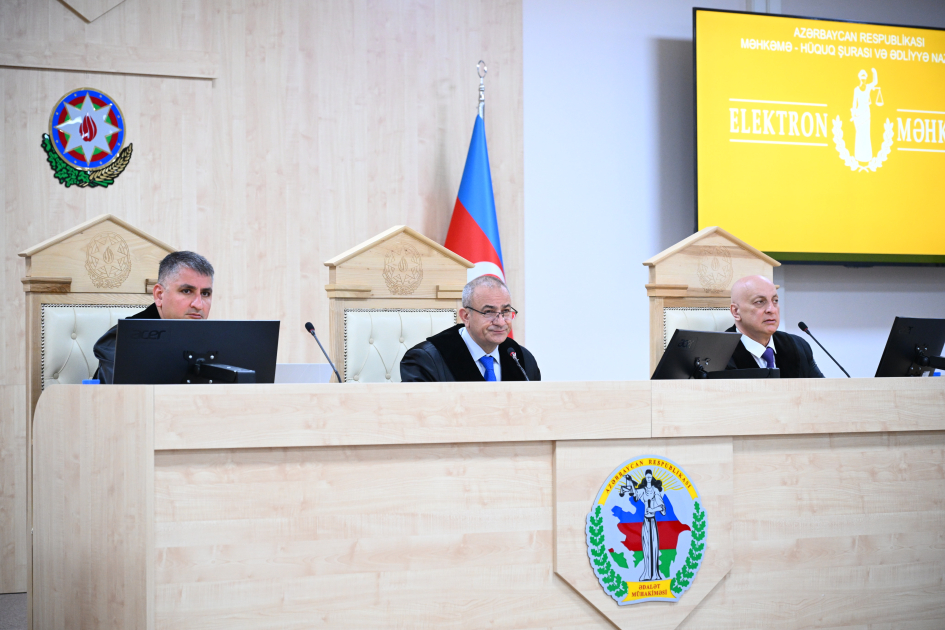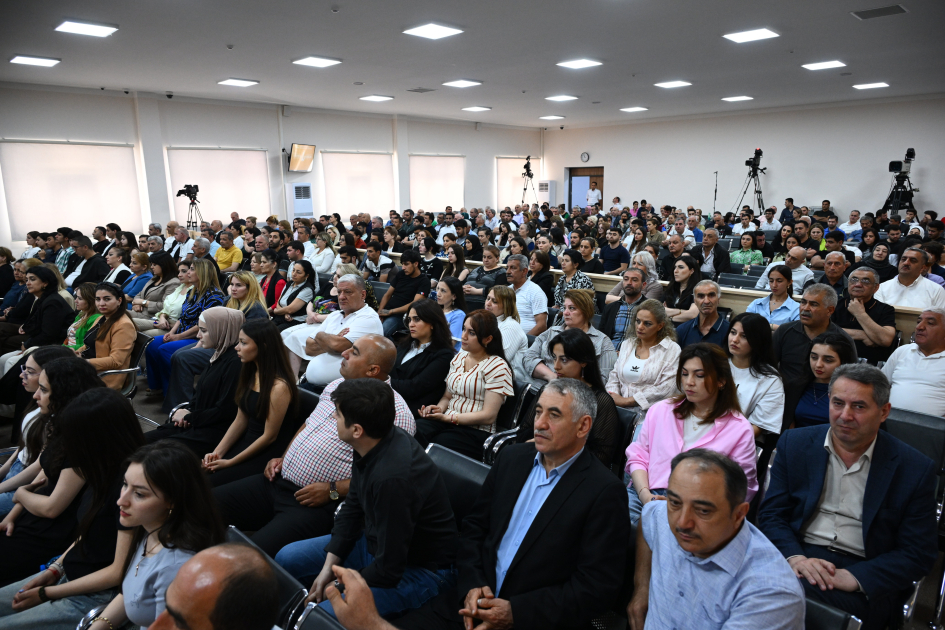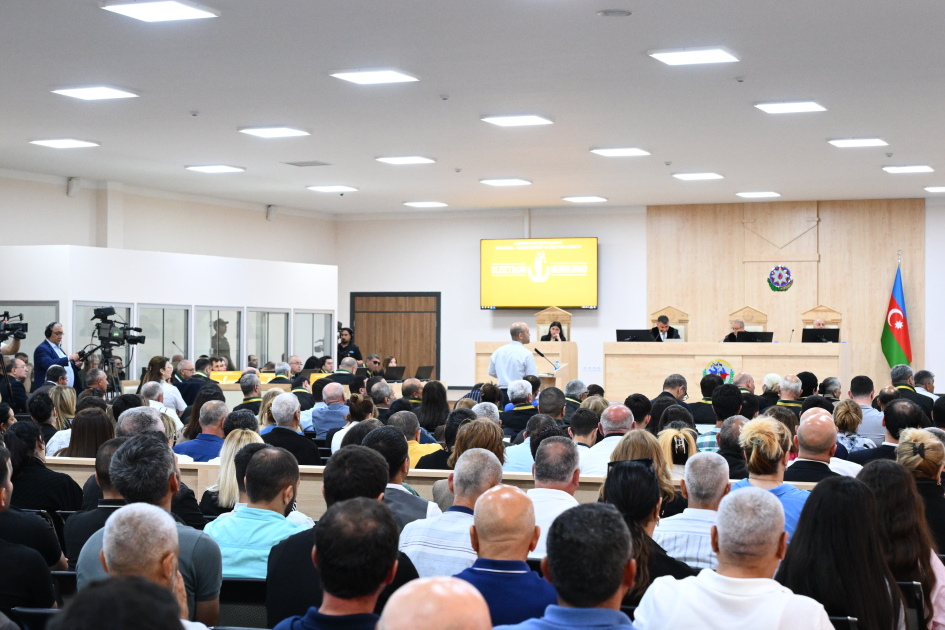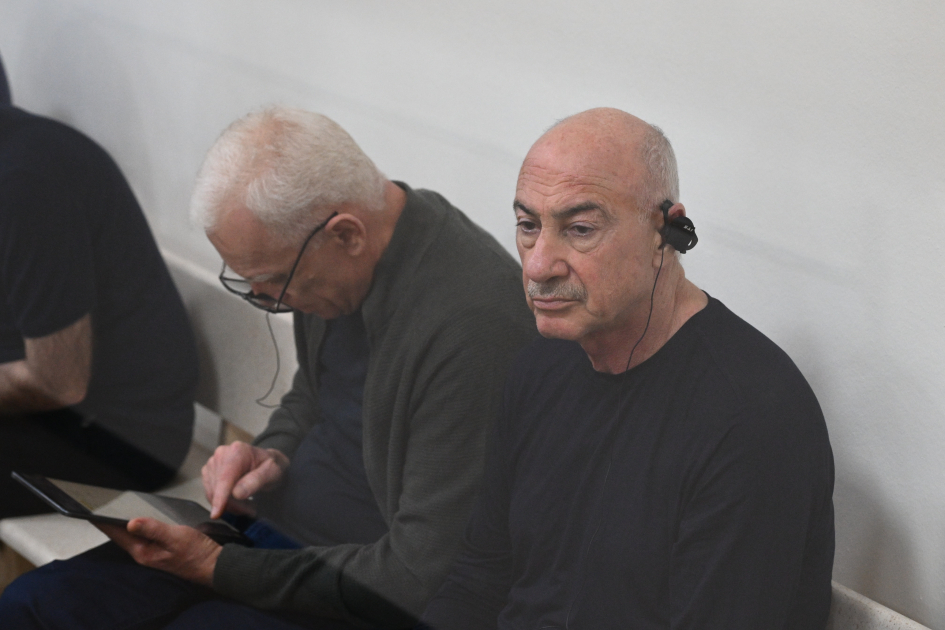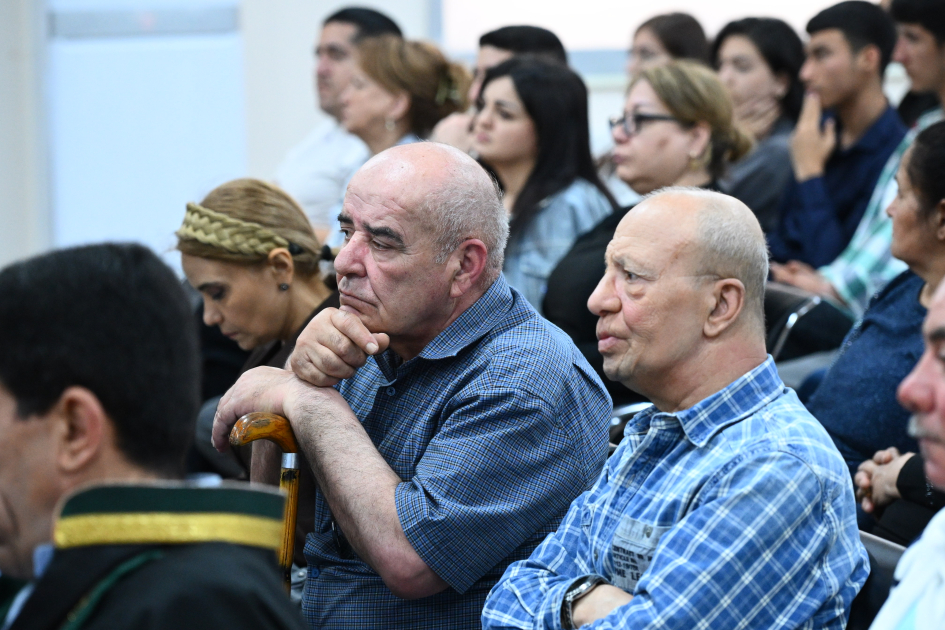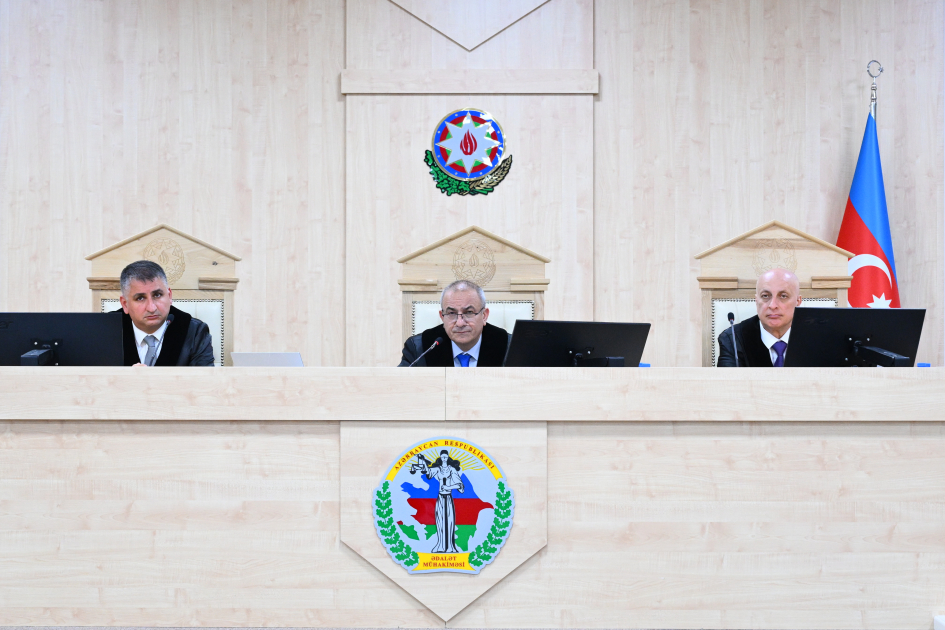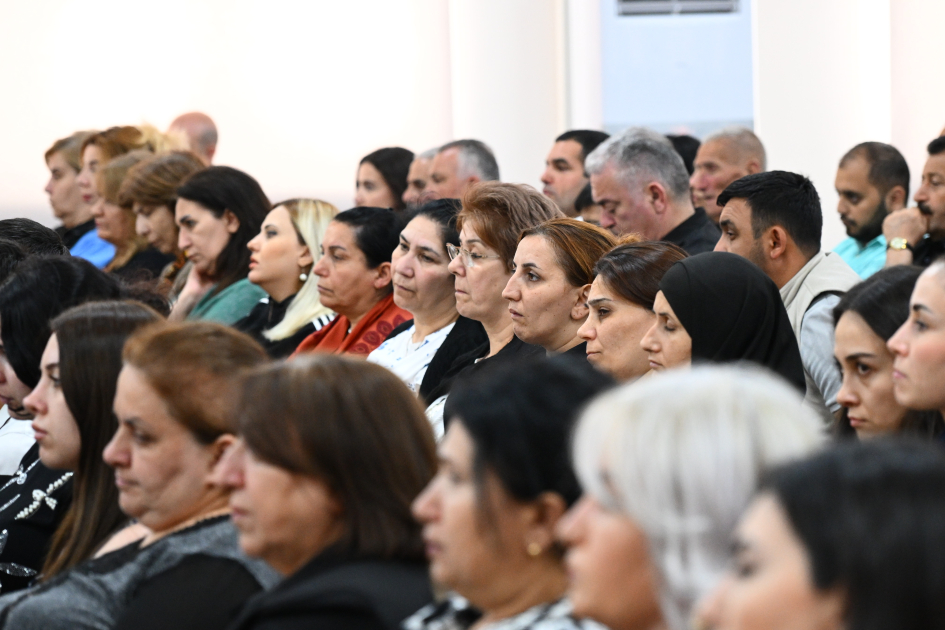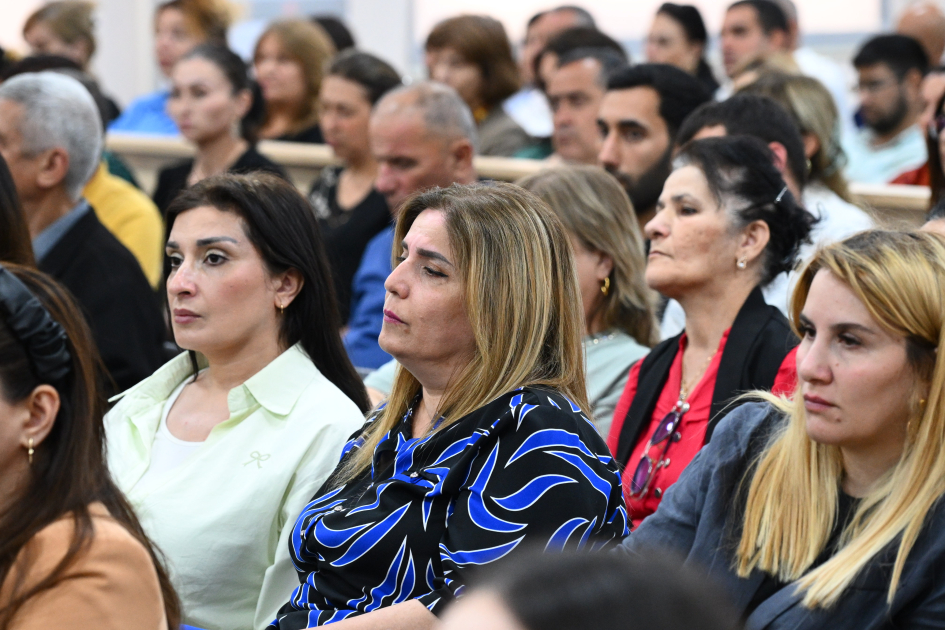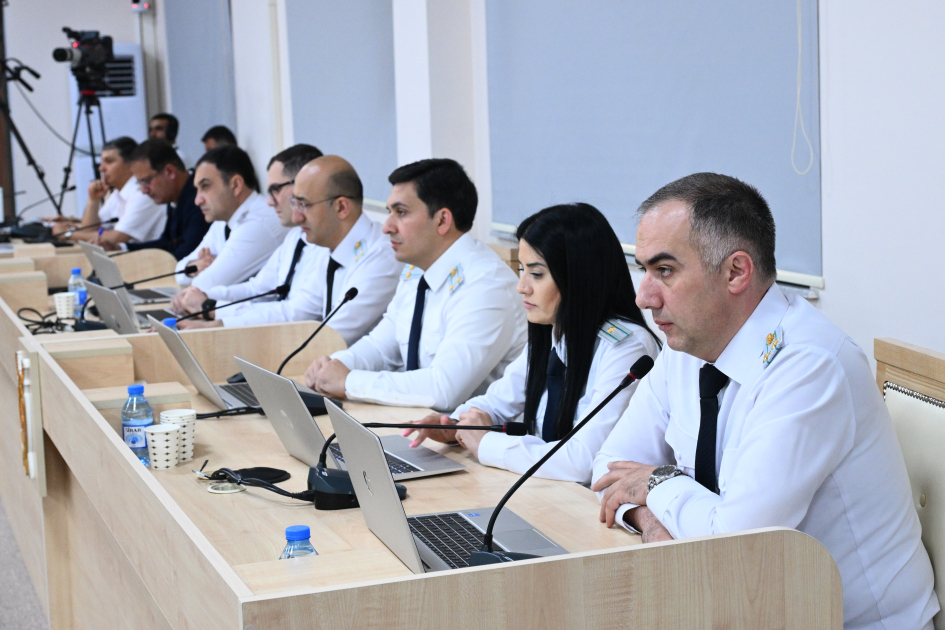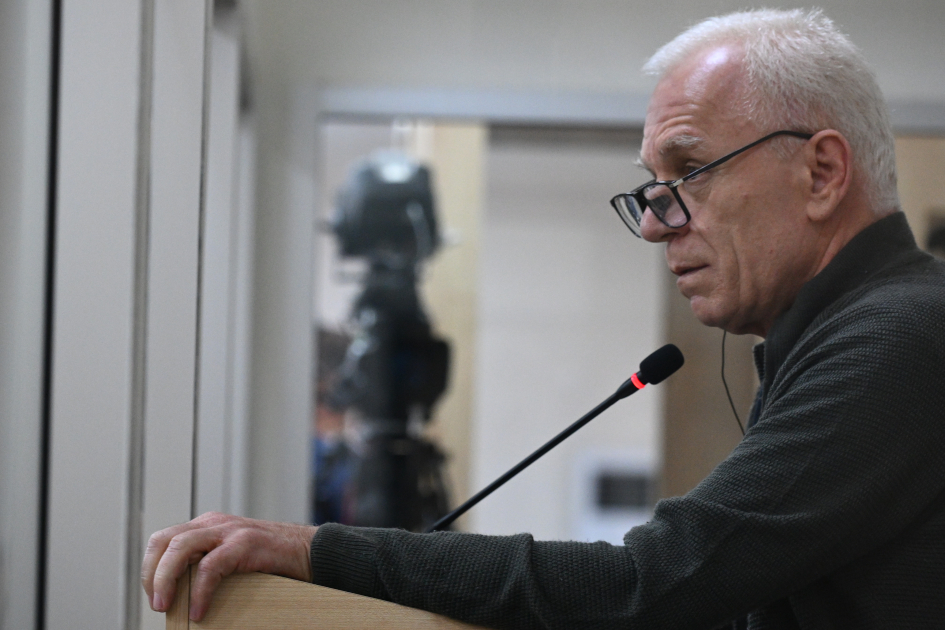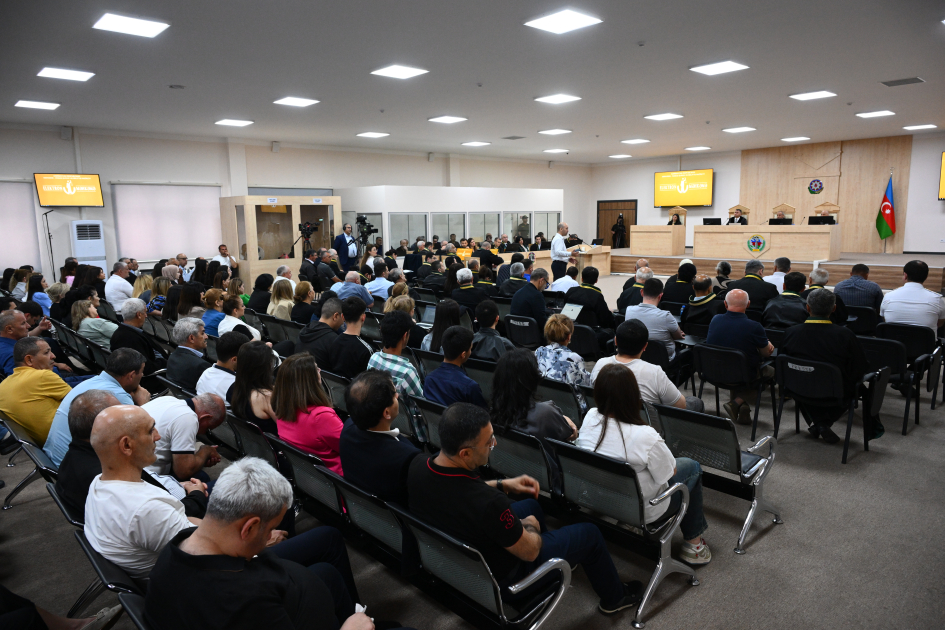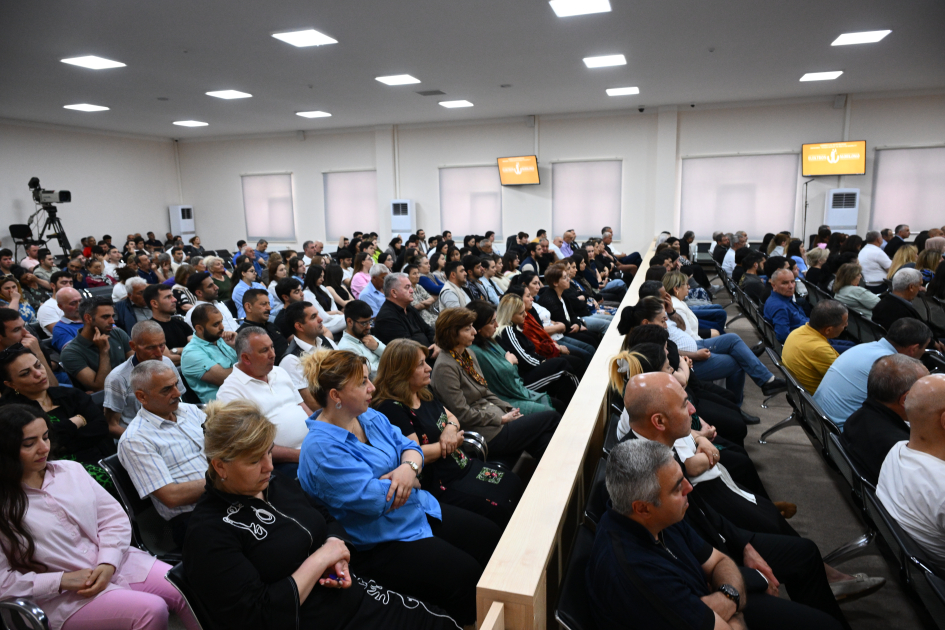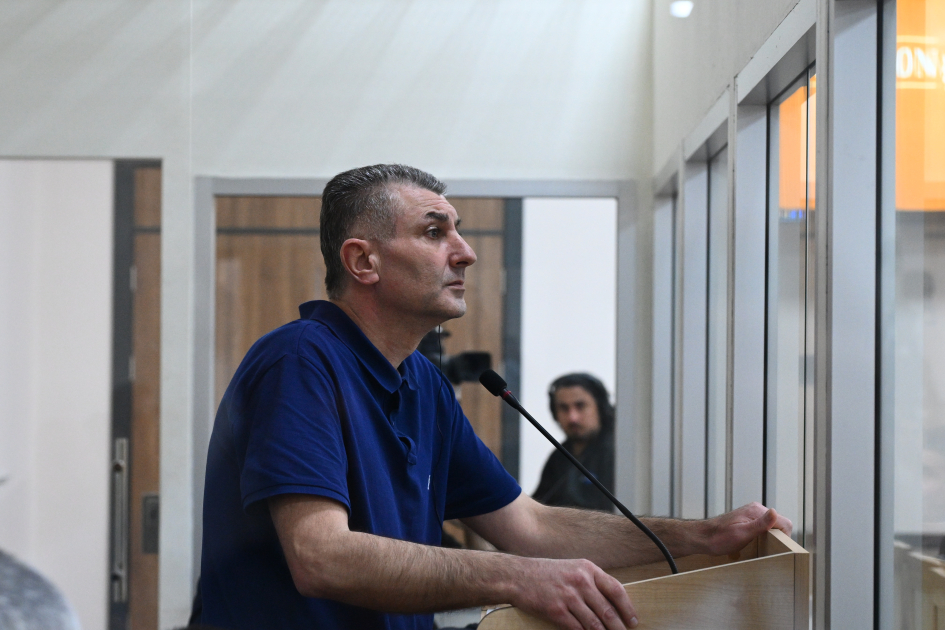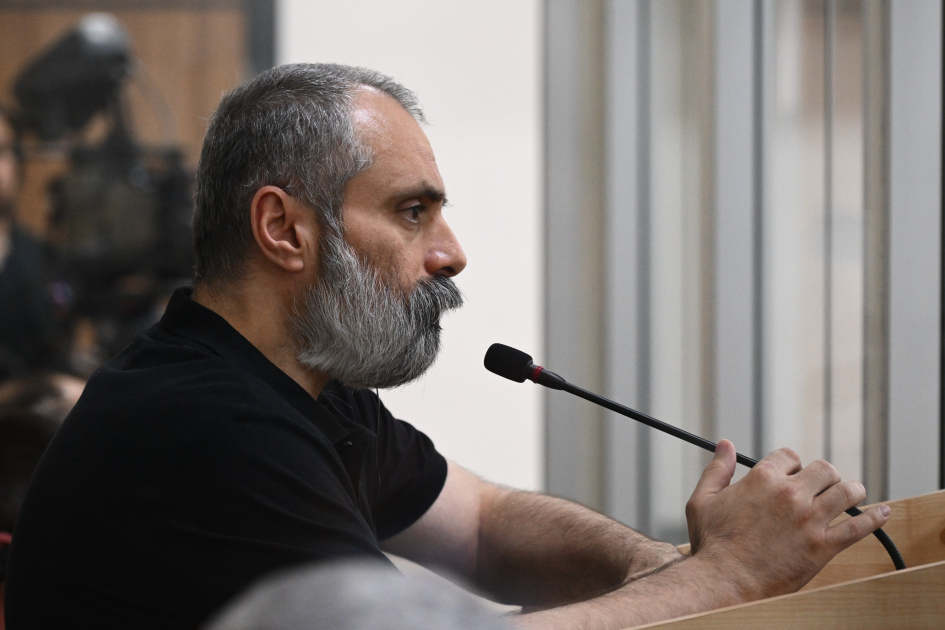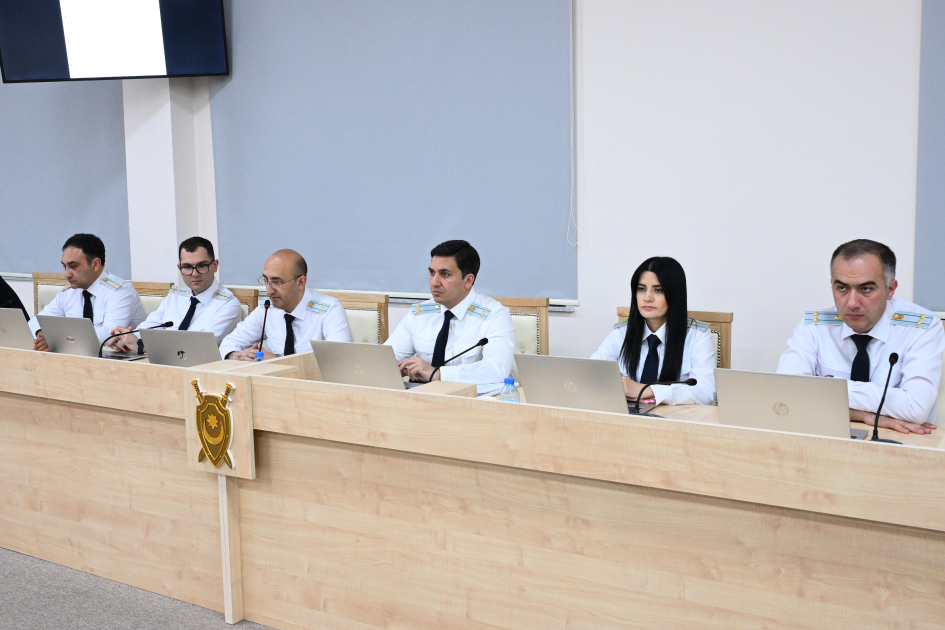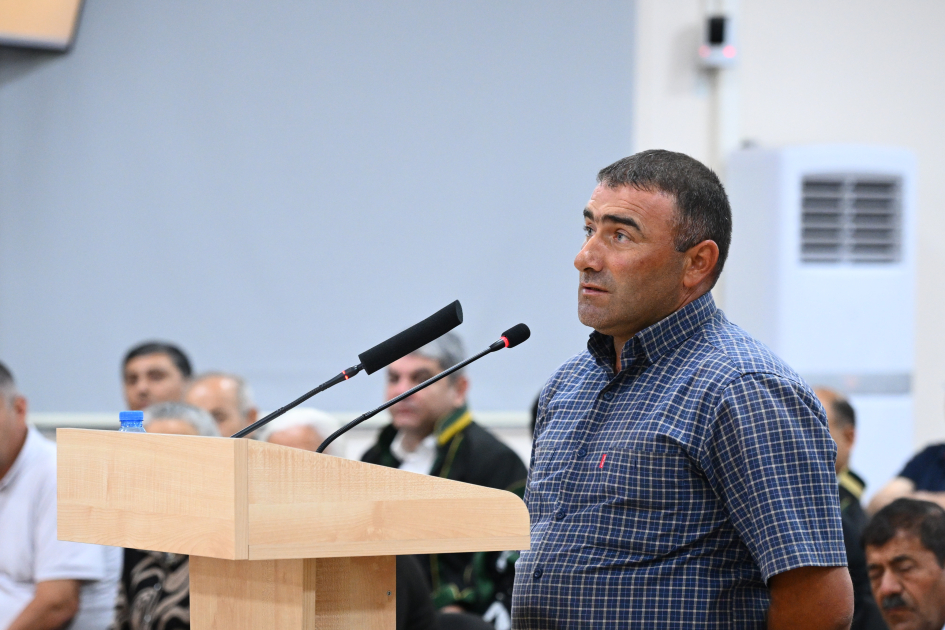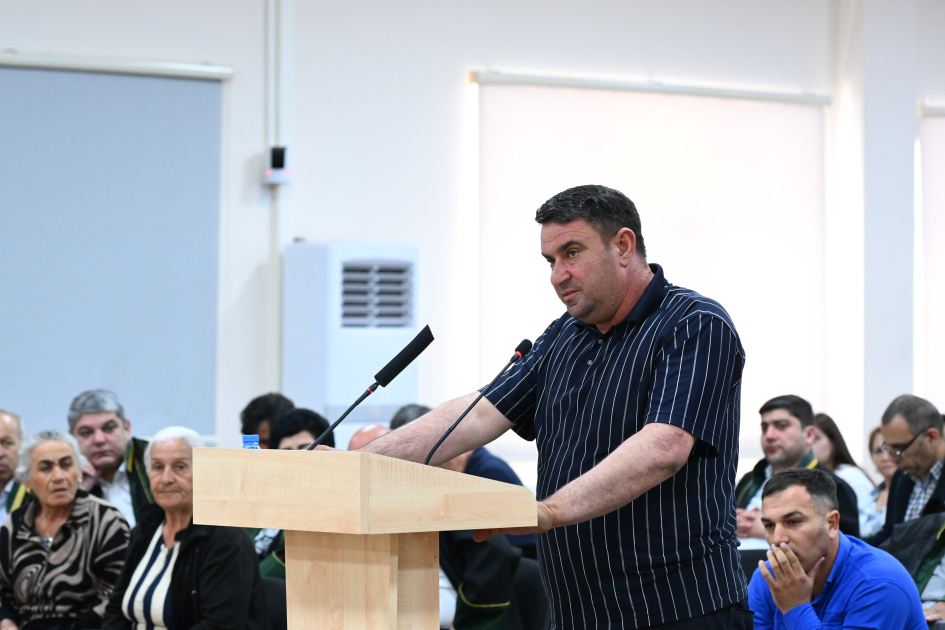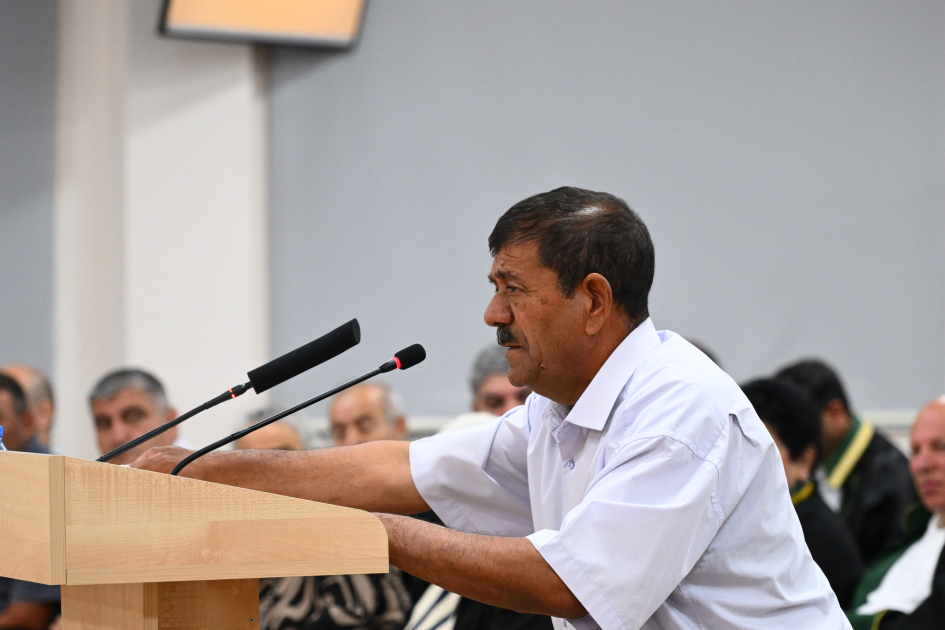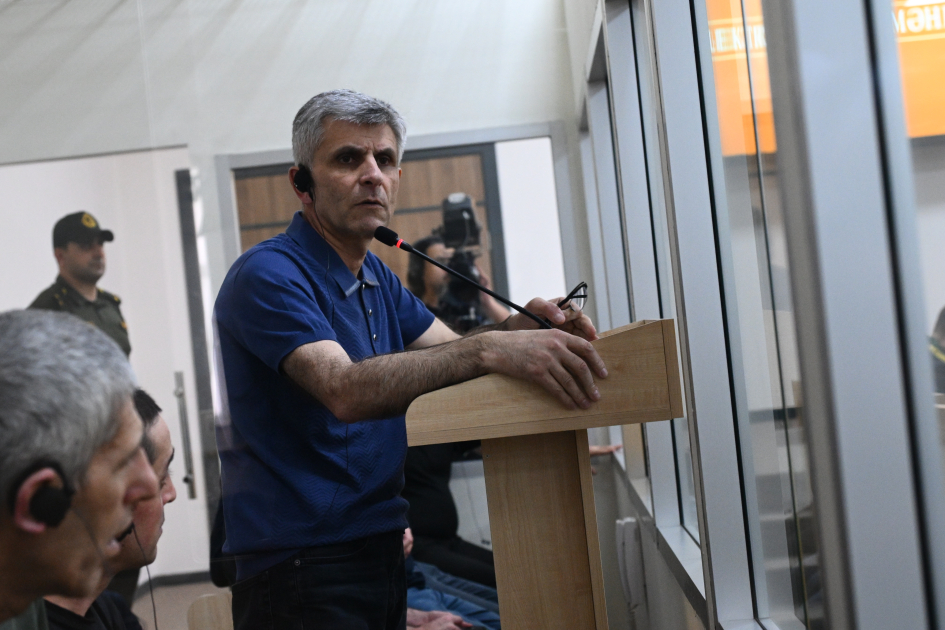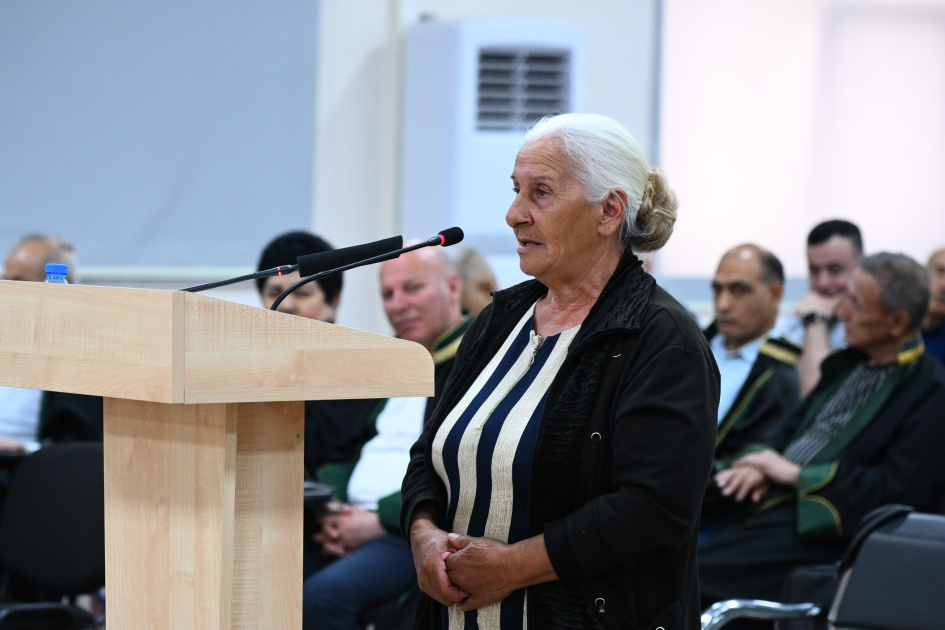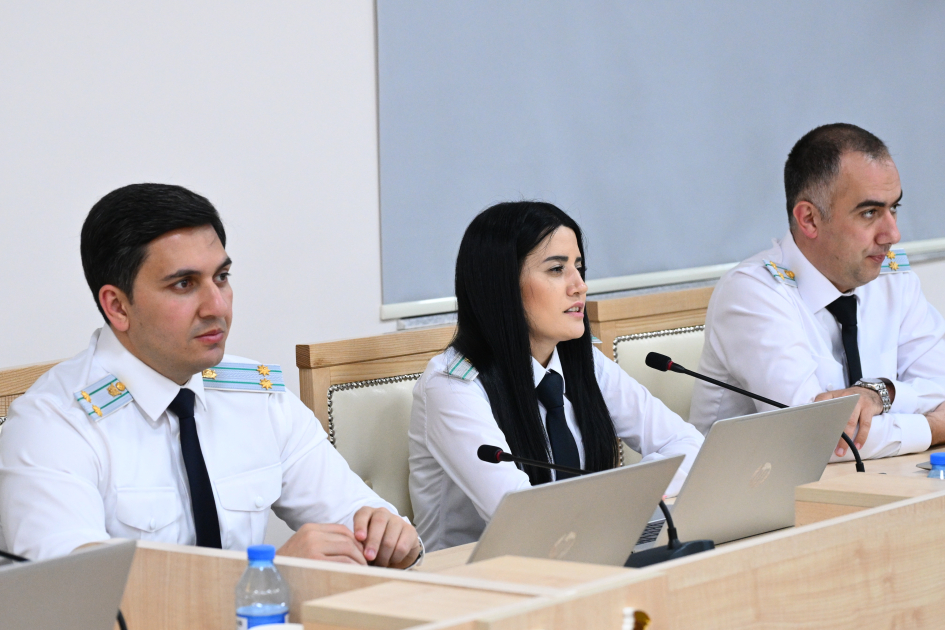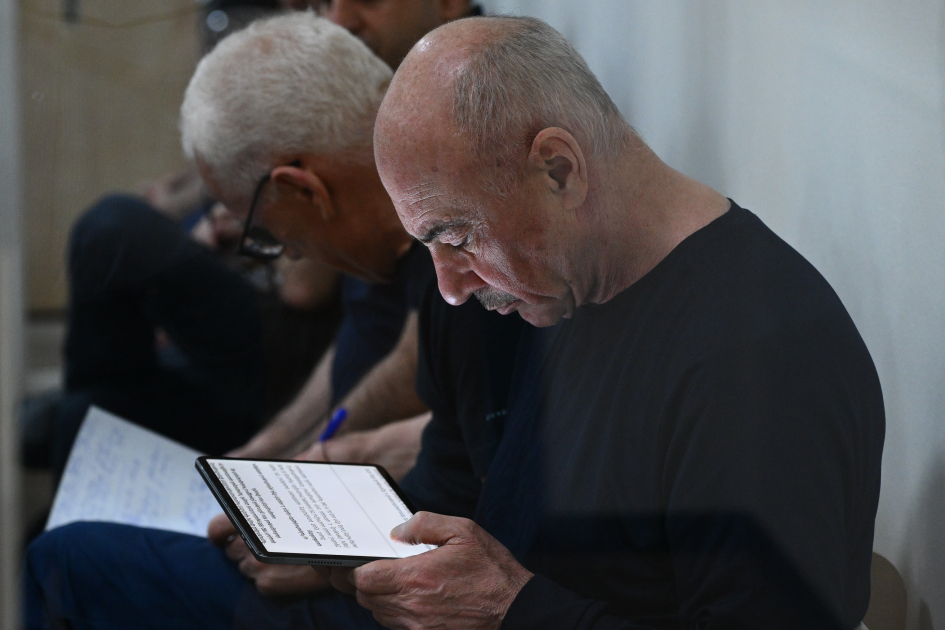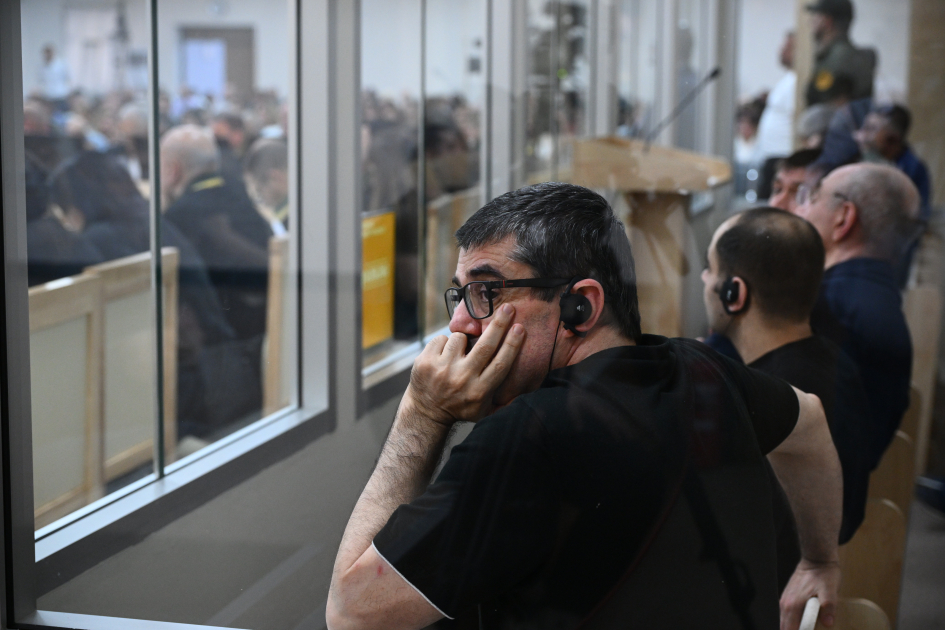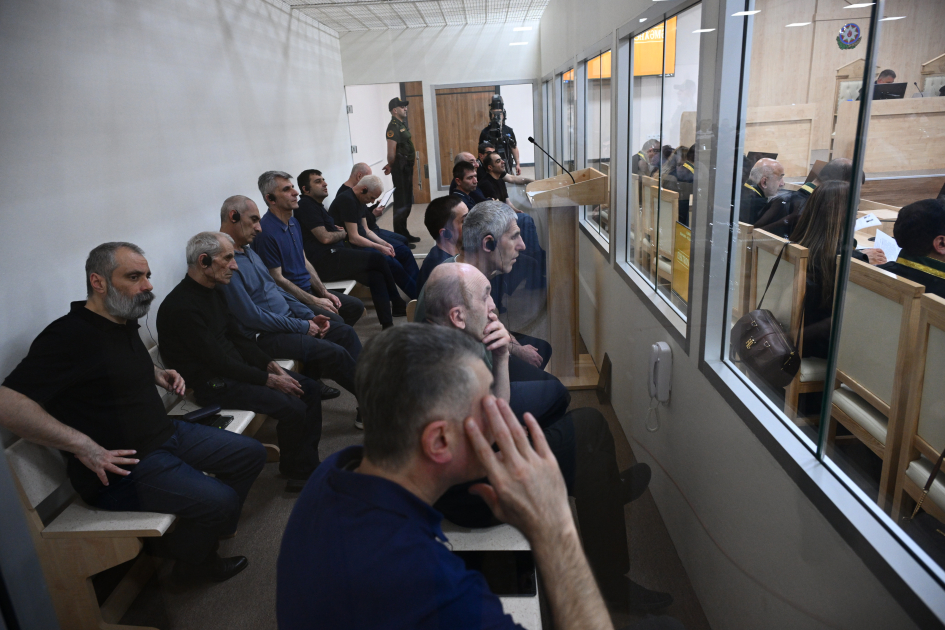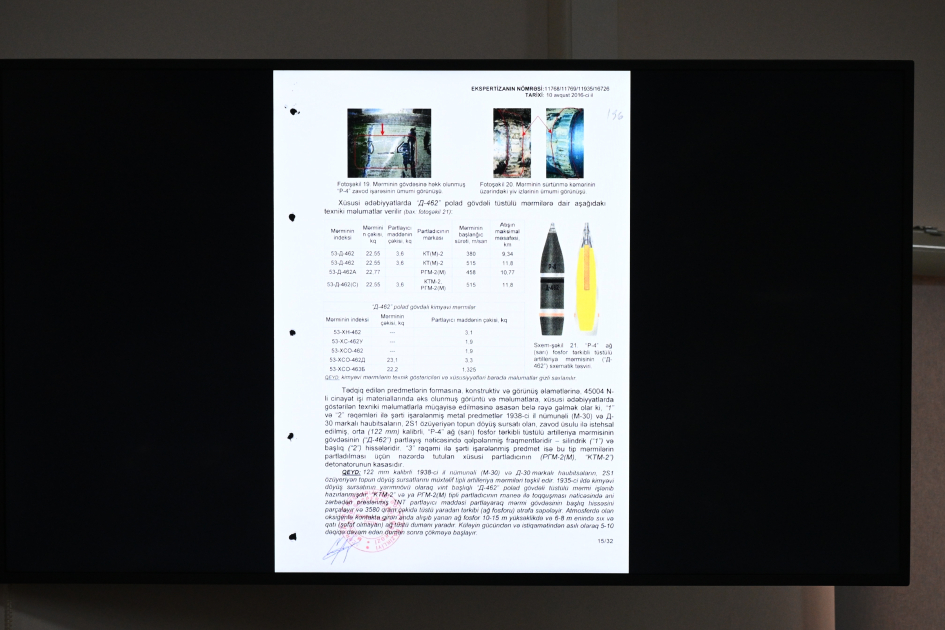BAKU, Azerbaijan, May 29. The open court session continued on May 29 at the Baku Military Court in the criminal case against Armenian citizens Arayik Harutyunyan, Arkadi Ghukasyan, Bako Sahakyan, Davit Ishkhanyan, David Babayan, Levon Mnatsakanyan, and others. They stand accused of crimes against peace and humanity, including war crimes, preparing and waging aggressive war, genocide, violations of the laws and customs of war, terrorism, financing terrorism, forcible seizure and retention of power, and other grave offenses arising from Armenia’s military aggression against Azerbaijan.
The court session, presided over by Judge Zeynal Aghayev, with Judges Jamal Ramazanov and Anar Rzayev (alternate judge Gunel Samadova), ensured that each defendant had legal representation and interpretation in their native language.
The session was attended by the accused, their lawyers, several victims and their legal successors and representatives, as well as state prosecutors.
At the beginning, Judge Zeynal Aghayev introduced the court staff and interpreters and explained the legal rights and obligations to the victims who were participating in the court proceedings for the first time.
Senior Assistant to the Prosecutor General Vusal Aliyev proposed continuing the trial by interviewing the victims under two chapters of the investigation and examining the related documents. The court began questioning victims of terrorist acts and other crimes committed in April 2016—known as the “April Battles”—and July 2020—known as the “Tovuz Battles.”
Victim Elmir Abbasov stated that he was injured during the April Wars in 2016 in the Tartar district, where he served in the military.
“According to the rules of war, a military unit should only engage another military unit,” he said. “However, they fired prohibited shells into villages and civilian areas—poisonous and incendiary munitions. The Armenian side used banned weapons extensively.”
He explained that in addition to cast iron fragments, the “shrapnel-type” shells used by Armenian forces contained more than 2,000 needles. “Even a single needle can cause mass poisoning,” he said. “During our training, they showed us videos proving that just touching one of these needles—even without penetration—can poison the body.”
Mnatsakanyan asked what military rank and position Abbasov held at the time. Abbasov replied that he was a battery commander in an artillery division and held the rank of captain.
Victim Abbas Allahverdiyev stated that the village of Tap Garagoyunlu, where he lived, was regularly shelled by Armenian forces using artillery and other weapons. In response to a question from Nasir Bayramov, Head of the Department of Public Prosecutions at the Prosecutor General’s Office, Allahverdiyev said that the state had built a stone wall to shield the village in 2013. However, the Armenian army continued its attacks. On the night of April 2, 2016, they opened fire from the direction of Aghdara. On the evening of April 3, a shell landed in his yard and exploded. He was wounded in the right undereye. His house and farm were seriously damaged.
Allahverdiyev also answered questions from the accused David Manukyan about the village's borders. Manukyan asked whether the Injachay River passed through the village. Allahverdiyev confirmed that it did.
Victim Elvin Karimov said that the Armenian armed forces repeatedly shelled the village of Alkhanli in the Fuzuli district, where he lives, with heavy artillery. On April 4, 2016, around 4 p.m., as he was leaving his house, a shell fell into his neighbor's yard and exploded. The shrapnel hit his right knee. He was taken to the hospital the same day.
Answering questions from Tarana Mammadova, a prosecutor in the Public Prosecution Department in the district courts of Baku, Karimov noted that Armenian servicemen fired at villagers while they were performing household chores.
The accused Levon Mnatsakanyan asked the victim, “How many firing positions were there in the area?” Karimov replied, “I didn’t count the firing positions or our posts. How could I know that?”
The accused David Babayan asked how many people lived in the village. The victim said he did not know the exact number of residents either.
Victim Anar Abdullayev noted that the village of Chamanli in the Aghdam district, where he lives, is located near the former line of contact. Armenian armed forces regularly shelled the village. On the night of April 27–28, 2016, while he was in the yard, a shell exploded in the yard of his uncle Huseyn. He felt a fragment hit his back and lost consciousness. When he came to, he was in the hospital. He later learned that his neighbor had driven him there in his own car.
Victim Sirdash Karimov said that on the night of April 27–28, 2016, Armenian forces launched another round of fire on Chamanli. At around 3 a.m., he and his neighbors—Famil Mustafayev (his cousin), Ali Huseynov (his uncle), Zahir Rahimov, Anar Abdullayev, and others—were in an onion field about 100 meters from Zahir’s house. From there, they saw Armenians firing Grad shells. Around 4 a.m., one of the shells landed nearby and exploded. Famil Mustafayev died on the spot. Others, including Sirdash Karimov, were injured. Ali Huseynov died in the hospital the next day.
In response to a question from public prosecutor Fuad Musayev, Karimov noted that the Armenian armed forces were heavily shelling the region at that time.
David Manukyan asked when he was injured. Karimov replied that it was on the night of April 27–28, 2016. Manukyan asked whether the village had been shelled from 1994 to 2016. Karimov said it had.
Victim Zahir Rahimov said that on the night of April 28, 2016, a shell exploded near where he was with residents Ali Huseynov, Famil Mustafayev, Sirdash Karimov, and Adil Mammadov. As a result, Famil Mustafayev was killed and Ali Huseynov was seriously injured and later died. Rahimov, Sirdash, and Adil received shrapnel wounds. One of the shells also damaged the walls of his house and destroyed the windows and barn roof.
Following the break, accused David Ishkhanyan expressed a desire to review the minutes of the May 26 hearing with fellow accused David Babayan.
Judge Zeynal Aghayev said conditions would be created for this, with an Armenian interpreter.
Victim Simran Guliyev noted that on April 4, 2016, Armenian forces used large-caliber weapons to shell his area. At about 8 p.m., when he stepped outside, a shell exploded 20 meters away. A cannonball fragment hit his right knee. He was taken to the regional central hospital.
Victim Mahbub Orujova stated that on July 17, 2020, at 14:30, a rocket-propelled device launched by Armenian forces exploded in the air above Bala Jafarli village, and fragments hit the roof of her house in Khanliglar village, Gazakh district.
Responding to a question from Tugay Rahimli, Assistant to the Prosecutor General for Special Assignments, she confirmed there were no military units in or near the village.
Victim Selmina Aliyeva also reported that on July 17, 2020, a shell fragment hit her house’s roof in Khanliglar. She also confirmed that there were no military units in the village.
Victim Vugar Sultanli said that during the Tovuz battles, Azerbaijani officers—Major General Polad Hashimov, Colonel Ilgar Mirzayev, and others—were martyred on July 14, 2020, during an enemy artillery strike. Sultanli, injured during their evacuation, emphasized that enemy forces deliberately targeted ambulances and medical personnel—actions prohibited by international humanitarian law and constituting war crimes.
When asked about Polad Hashimov’s death, accused Davit Ishkhanyan remarked, “Based on what I've heard, he was both a good soldier and a good person,” and asked whether the incident occurred at night or during the day.
The victim said it occurred during the day.
Victim Mahammadali Imanov stated that his village of Mahrizli in the Aghdam district was regularly shelled. On April 27, 2016, shootings resumed in the evening. That night, his son Anar, along with neighbors Siyasat and Adalat, went to the house of another neighbor, Teyyub. On April 28, at around 5 a.m., a shell hit Teyyub’s house, and Anar sustained a head injury.
Defendant Mnatsakanyan asked: “Did they shoot only at your village or at others too?”
Imanov answered: “Yes, they shot at other villages as well.”
Victim Kamil Jahanov said that on July 17, 2020, at 2:30 p.m., a shell exploded and fragments hit the roof of his house in Khanliglar village, Gazakh district. “Earlier, when I went to graze cattle, Armenian soldiers fired,” he added.
Victim Aziz Shirinov said that a shell fired by Armenian forces damaged his house in Khanliglar during the Tovuz battles.
The court also read out medical expert opinions regarding the victims.
Senior Assistant to the Prosecutor General Vusal Aliyev reviewed expert opinions and inspection protocols concerning Azerbaijani citizens killed by shelling of civilian areas by Armenian forces in April 2016. These included documents regarding the deaths of Rahimov Orkhan Valerik oglu (b. 1983), Asadli Farman Elchin oglu (b. 1990), Hasanli Turana Kamandar gizi (b. 2000), Dadashov Garash Shahmar oglu (b. 1954), Mustafayev Famil Ali oglu (b. 1967), Huseynov Ali Museib oglu (b. 1942), and related injuries to others.
The next court hearing is scheduled for May 30.
The defendants — Arayik Vladimiri Harutyunyan, Arkadi Arshaviri Ghukasyan, Bako Sahaki Sahakyan, Davit Rubeni Ishkhanyan, David Azatini Manukyan, Davit Klimi Babayan, Levon Henrikovich Mnatsakanyan, Vasili Ivani Beglaryan, Erik Roberti Ghazaryan, Davit Nelsoni Allahverdiyan, Gurgen Homeri Stepanyan, Levon Romiki Balayan, Madat Arakelovich Babayan, Garik Grigori Martirosyan, and Melikset Vladimiri Pashayan — are charged under the following articles of the Criminal Code of the Republic of Azerbaijan: Article 100 (planning, preparing, initiating, and waging a war of aggression); Article 102 (attacking persons or organizations enjoying international protection); Article 103 (genocide); Article 105 (extermination of the population); Article 106 (enslavement); Article 107 (deportation or forced displacement of population); Article 109 (persecution); Article 110 (enforced disappearance of persons); Article 112 (deprivation of liberty contrary to international law); Article 113 (torture); Article 114 (mercenary service); Article 115 (violation of the laws and customs of warfare); Article 116 (violation of international humanitarian law during armed conflict); Article 118 (military robbery); Article 120 (intentional murder); Article 192 (illegal entrepreneurship); Article 214 (terrorism); Article 214-1 (financing terrorism); Article 218 (creation of a criminal organization); Article 228 (illegal acquisition, transfer, sale, storage, transportation, and possession of weapons, ammunition, explosives, and devices); Article 270-1 (acts threatening aviation security); Article 277 (assassination of a state official or public figure); Article 278 (forcible seizure and retention of power, forcible change of the constitutional structure of the state); Article 279 (creation of armed groups not provided for by law); and other articles.

